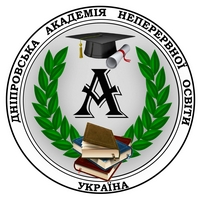SELF-ASSESSMENT OF THE FORMATION OF MANAGERIAL COMPETENCE OF FUTURE EDUCATION MANAGERS
Abstract
The article is devoted to the study of master students’ self-assessment of managerial competence in the context of modern higher education. The relevance of the problem is confirmed from the pedagogical, psychological and social points of view. The works of foreign and domestic scholars are analysed, scientific achievements in the field of research are emphasised. It is emphasised that the systematic assessment of managerial competence is a key part of the process of forming professional training of masters, which ensures the compliance of educational and professional and training programmes with modern requirements. The purpose of the article is to develop a model for self-assessment of the level of managerial competence of future education managers by the parameters of «multidisciplinarity» and «multifunctionality» and to allocate the appropriate levels of formation of such competence. The importance of using such parameters for evaluation as «multidisciplinarity» and «multifunctionality» of managerial activity is substantiated. The relevant definitions of these parameters are presented. Their importance for identifying gaps in the knowledge and skills of future educational managers is emphasised. Each of these parameters is described by a certain set of indicators that can be selected by the method of an expert survey. A set of indicators with numerical values from 1 to 6 defines the evaluation criteria. The levels of formation of each indicator of managerial competence are distinguished according to the gradation of its development: «initiation», «comprehension», «execution», «skillfulness», «experience», «authority» Each parameter is described by ten indicators that can be assessed by six levels of development. It has been determined that self-assessment as a tool reflects the personal readiness of master’s students for professional activities in the field of management, which is especially relevant in the context of rapid social change and growing demands on the multifunctionality of education managers. Prospects for further research may include the development of new assessment models, the use of various parameters and the study of the role of the social context of managerial activity. The work is relevant for teachers, researchers and students involved in higher education and management.
References
2. Боднар О. С. Управління аналітикоекспертною діяльністю у сфері загальної середньої освіти регіону (теоретикоприкладний аспект): монографія. Тернопіль: Крок, 2013. 544 с.
3. Лебідь О. В. Формування готовності майбутнього керівника загальноосвітнього навчального закладу до стратегічного управління в умовах магістратури: теоретикометодичний аспект: монографія. Дніпро: Унт імені Альфреда Нобеля, 2017. 416 с.
4. Нємченко С. Г. Теоретичні і методичні засади підготовки менеджерів освіти до рефлексивного управління: дис. … дра пед. наук. Харків, 2021. 481 с. URL: https://science.uipa.edu.ua/wpcontent/uploads/2021/03/dissertationnemchenko.pdf (дата звернення 14.03.2023).
5. Сас Н. М. Підготовка майбутніх керівників навчальних закладів до інноваційного управління: стан та перспективи: монографія. Полтава: ПНПУ імені В. Г. Короленка, 2014. 336 с.
6. Сучасний контент професійного розвитку менеджерів освіти в умовах глобальних викликів та реформ: колект. монографія / С. К. Хаджирадєва та ін.; за заг. ред. С. К. Хаджирадєвої. Миколаїв: Ємельянова Т. В., 2017. Ч. 2. 164 с.
7. Торган М. М. Аналіз стану підготовки менеджерів освіти до виконання професійних функцій. Вісник Національної академії Державної прикордонної служби України. 2010. Вип. 1. URL: http://nbuv.gov.ua/UJRN/Vnadps_2010_1_22 (дата
звернення 08.12.2022).
8. Фуллан М. Сили змін. Вимірювання глибини освітніх реформ; пер. з англ. Г. Шиян, Р. Шиян. Львів: Літопис, 2000. 269 с.
9. Bush Tony. Educational Leadership аnd Management: Theory, Policy, аnd Practice. Main Issues Of Pedagogy And Psychology, 2020, № 3 (3). P. 31–43. URL: https://files.eric.ed.gov/fulltext/EJ1150205.pdf (дата звернення: 16.02. 2023).
10. Davide Donina Managing Universities: Policy and Organizational Change from а Western European Comparative Perspective. Edited by I. Bleiklie, J. Enders, and B. Lepori, London, Palgrave Macmillan, 2017. 329 pp. URL: https://www.tandfonline.com/doi/abs/10.1080/21568235.2018.1541049?journalCode=rehe20 (accessed: 12.09.2022) (дата звернення: 21.04.2023).
11. Lunenburg F. C., & Ornstein A. O. Educational administration: Concepts and practices. Belmont, C A: Wadswoth/Cengage, 2012. 516 pp.

 ISSN
ISSN  ISSN
ISSN 

